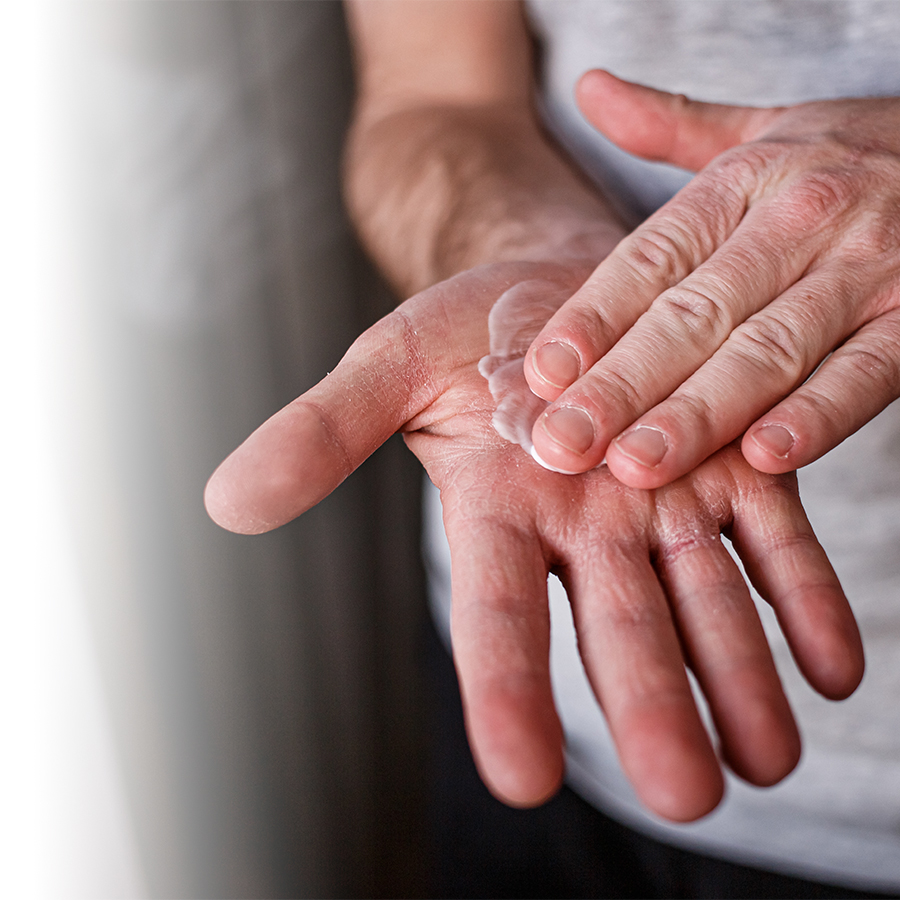Your hands provide you with many services, which can sometimes damage them. How can you prevent them from becoming chapped and cracked?
Hand health
Hands accomplish many daily tasks, and sometimes, even small miracles! We sometimes forget just how much our hands are called on every day. So, it’s easy to lose sight of the importance of providing them with extra tender loving care, as a reward for services rendered!
The health of neglected hands is often compromised. The skin is often the first to be affected. A lack of hydration and frequent or prolonged exposure to various irritants contribute to excessive dryness. Over time, skin can become rough and other symptoms can appear such as:
- redness
- itching
- fissures, also called chafing or cracks
- bleeding
- discomfort, and
- pain
Chapped hands can predispose a person to infection. This is another excellent reason to resolve the problem quickly.
Causes and risk factors
Chapped hands usually occur when the skin is very dry, making them more fragile and sometimes causing damage, leading to fissuring and cracks.
This problem can affect anyone. However, persons exposed to the following elements are more likely to be affected by it:
- the cold or extreme temperature variations
- frequent handwashing or work that requires constantly putting your hands in water
- irritating agents:
- detergents (soap, shampoo, household products, etc.)
- plants, earth, shrub roots, etc.
- chemicals
- etc.
- skin conditions, such as eczema or psoriasis
Aging is another factor that weakens skin and predisposes it to chapped skin caused by dryness.
Prevention
Small lifestyle changes can help to prevent dry hands and the onset of chapping, such as:
- Wash hands with a mild, fragrance-free cleanser that does not contain irritating agents. Use warm, never hot, water.
- Next, dry hands using a clean towel and by gently patting them dry, without rubbing.
- Moisturize skin regularly with an emollient, a product that softens the skin while moisturizing it. Some products have anti-itching properties. Your pharmacist can provide information to help you to make the appropriate choice.
- Apply a protective cream to your hands. This product forms a thin protective barrier that protects hands from irritation. This type of product also deeply moisturizes the skin and provides relief from discomfort and itching.
- Reduce tasks that require your hands to be in contact with water or other irritating agents, and wear gloves.
- Avoid rubbing hands or fingers together unnecessarily.
- Protect hands from the cold weather by wearing gloves or mitts.
Treatment
If you are unable to resolve the situation despite applying these measures, your pharmacist can provide you with additional advice. For example, they can recommend
- dressings (regular or liquid) to protect cracks
- gloves (e.g., latex, vinyl or nitrile for work or white cotton to wear during the night)
- a specially formulated cream for chapped hands (e.g., urea-based)
- an antibiotic cream (or ointment) to prevent or control infection
- a cortisone-based cream (or ointment)
If they identify a risk of worsening or complications, they may encourage you to see a doctor, who may consider other therapeutic options.
Don’t hesitate to speak to your pharmacist for additional information about hand care.

